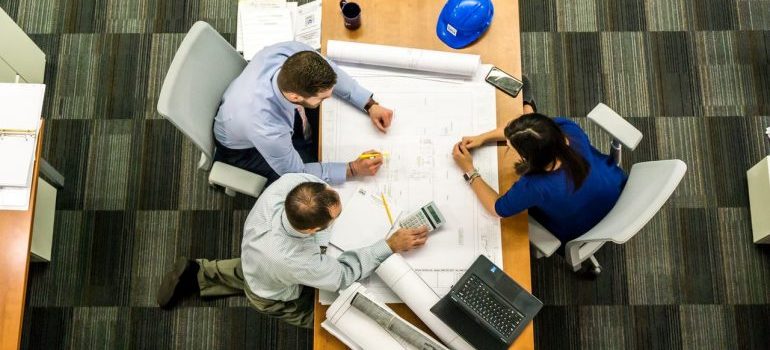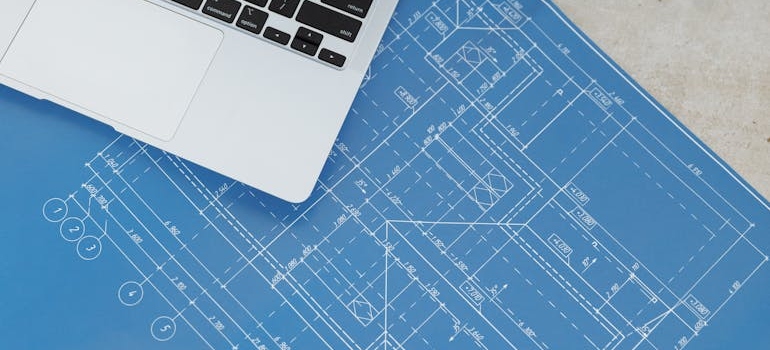Guide to Relocating Your Hotel
Are you considering relocating your hotel to or within Boise, Idaho? Moving a hotel can be a transformative decision, offering opportunities for greater market access, improved visibility, and upgraded facilities. However, it also presents challenges such as financial strain and logistical complexities. With careful planning and expert guidance, you can navigate these hurdles with one of the most reputable moving companies Boise has and make your hotel relocation a success. Our complete guide will walk you through each step, from the initial feasibility study to the grand opening at your new location, ensuring a smooth and successful transition. So, let’s turn your relocation vision into reality, minimizing risks and maximizing benefits along the way.
Initial Planning and Assessment
Relocating a hotel begins with a thorough initial planning and assessment phase. This stage is crucial as it lays the foundation for a successful move, ensuring that all subsequent steps are grounded in solid analysis and strategic thinking. Once you evaluate the necessity and feasibility of relocation and select an optimal site, you set your hotel up for long-term success in its new location.
Feasibility Study
The first step in planning your hotel relocation is conducting a comprehensive feasibility study. This involves assessing market conditions to understand demand and competition in potential new locations. Examine the financial implications, including costs related to property acquisition, construction, and potential revenue changes.
Evaluate your strategic goals and determine how the move aligns with your long-term vision for the hotel. Consider factors such as the current market landscape, competitor analysis, and financial health to make an informed decision. If you meticulously analyze these elements, you will be able to determine whether relocating will provide the anticipated benefits and growth opportunities.

Site Selection
Once you’ve established the feasibility of moving, the next critical step is selecting the right site for your hotel. Choose a location that offers high accessibility and visibility to attract your target market. Assess the surrounding area for local amenities that could enhance guest experience, such as dining, shopping, and entertainment options.
Also, ensure the site complies with zoning laws and other regulatory requirements. Don’t forget to consider factors like traffic patterns, public transportation access, and the overall safety of the area. A well-chosen site will meet these practical criteria and also align with your brand’s identity and appeal to your target demographic, laying the groundwork for a successful relocation.
Financial Planning
Effective financial planning is essential for a successful hotel relocation. This phase ensures that you have a clear understanding of all costs involved, from real estate purchase, over freight shipping Boise services to promotion and opening, and secure the necessary funds to cover them. Creating a detailed budget and exploring various funding options helps avoid unexpected financial pitfalls and keeps your project on track.
Budgeting
Developing a comprehensive budget is the cornerstone of your financial planning. This budget should cover all aspects of relocating your hotel, including:
- Property acquisition;
- Construction and renovation;
- Permits and licenses;
- Relocation expenses;
- Equipment and furnishings;
- Marketing and promotion.
Start by estimating the cost of acquiring the new property, considering not only the purchase price but also any associated fees and taxes. Next, factor in the costs of relocation with movers, construction, and renovation to ensure the new site meets your operational needs and brand standards.
Don’t forget to include the costs of obtaining necessary permits and licenses, as well as purchasing new or relocating existing electronic equipment and furnishings. Additionally, allocate funds for marketing to promote the new location and attract customers. Detailing these expenses meticulously creates a realistic budget that will guide your financial decisions throughout the relocation process.
Funding
Once your budget is established, the next step is to secure the necessary funding. There are several options to consider:
- Loans from banks or financial institutions;
- Investor funding from stakeholders or venture capitalists;
- Company reserves, if available.
Evaluate the pros and cons of each funding source. Loans can provide substantial capital but require repayment with interest, affecting your cash flow. Investor funding might offer larger sums without immediate repayment but often involves giving up some control or equity in your business. Using company reserves can be the least costly option in terms of interest or equity but may limit your financial flexibility in other areas. Considering these options carefully allows you to choose the best funding strategy to support your hotel’s relocation.
Legal and Regulatory Compliance
Adhering to legal and regulatory requirements is a critical aspect of relocating a hotel. Ensuring compliance with all necessary permits, licenses, and zoning regulations can prevent costly delays and legal issues, allowing for a smooth transition to your new location.
Permits and Licenses
Securing the right permits and licenses is essential for the legal operation of your hotel in its new location. What specific permits and licenses will you need for your move? This question should be at the forefront of your planning process. Typically, you will require building permits for any construction or renovation work, health permits for food service operations, and general business licenses to conduct business in the new area legally. Moreover, permits related to signage, fire safety, and environmental compliance might be necessary.
Ensuring that you have all necessary permits and licenses involves a thorough research and early engagement with local government agencies. Consulting with legal advisors or hiring a relocation consultant who understands local regulations can provide valuable insights. Establishing a timeline for obtaining each permit and license will help align these requirements with your overall relocation schedule, thereby avoiding potential disruptions.
Zoning Regulations
Understanding and complying with zoning regulations is another critical step in the process of relocating your hotel. Zoning regulations determine how your new property can be used, influencing building size, location, and operational constraints. Why are these regulations so important? Non-compliance can lead to fines, legal actions, or even the suspension of your operations.
So, how can you ensure your new site complies with local zoning laws? Start by reviewing the property’s zoning classification with local planning departments. It is essential to confirm that the property is zoned for hotel use and understand any specific restrictions or requirements. Working with a real estate attorney or zoning expert can facilitate this process. Conducting a zoning analysis early in the site selection process can save significant time and resources, ensuring your new location aligns with all necessary legal standards.

Project Management
Effective project management is essential to ensure the hotel relocation progresses smoothly and stays on schedule. A well-structured timeline and coordinated team efforts can make the difference between a successful move and a chaotic one.
Timeline
Establishing a detailed timeline is the first step in managing your relocation project. This timeline should include:
- Key milestones such as feasibility study completion, site selection, and budget approval
- Deadlines for obtaining permits and licenses
- Start and completion dates for construction and renovation
- Schedule for marketing campaigns and customer notifications
- Dates for the soft opening and grand opening
Setting clear milestones and deadlines allows you to monitor progress and make necessary adjustments to stay on track. With a solid timeline in place, the next crucial step is to ensure seamless collaboration and coordination among your project team.
Team Coordination
Assembling a capable project management team is crucial for overseeing the process of relocating your hotel. The team should include roles such as a project manager to lead and coordinate efforts, a legal advisor to handle permits and compliance issues, a financial officer to manage the budget, and a marketing director to promote the new location. Clear communication and coordination among team members ensure that each aspect of the relocation is handled efficiently and effectively.
Design and Construction
The design and construction phase is where your new hotel location begins to take shape. This stage involves careful planning and execution to ensure that the new site meets both operational needs and brand expectations.
Architectural Design
Hiring architects and designers who understand your brand’s identity and customer expectations is vital. They will create plans that not only meet functional requirements but also enhance the guest experience. What design elements will reflect your brand’s unique identity? Consider aspects such as interior layout, exterior aesthetics, and sustainable design practices that align with your brand values.
Construction
Selecting reputable contractors is key to ensuring quality and adherence to the timeline. Overseeing the construction process requires attention to detail and consistent communication with contractors. How will you ensure that the construction meets your standards and stays on schedule? Regular site visits, progress meetings, and a clear contract outlining expectations can help maintain the quality and timeliness of the project.
Logistics and Operations
Managing the logistics and operations of relocating a hotel is a complex task that requires meticulous planning and execution. Partnering with third-party logistics (3PL) providers and expert hospitality movers can significantly streamline this process, ensuring efficiency and reducing the risk of disruptions.
Inventory Management
Effective inventory management is the foundation of a smooth relocation. Start by cataloging all existing assets, from furniture and equipment to supplies and decor. Determine which items will be moved to the new location, which can be sold, and which should be discarded. This careful sorting process helps minimize unnecessary transportation costs and ensures that only essential, high-quality items are moved.
Transportation
Arranging for the transportation of your hotel’s assets is a critical step in the process of relocating your hotel. Engaging expert hospitality movers can significantly improve the efficiency and safety of this task. These professionals are well-versed in handling the unique challenges of moving hotel equipment and furnishings, ensuring that everything arrives at the new location intact and on schedule. Utilizing distribution and logistics services can further enhance this process by providing integrated transportation, warehousing, and distribution solutions, allowing for a more coordinated and seamless move.
Setup
Ensuring that the new hotel is fully equipped and operational before the official opening is paramount. What strategies will you employ to guarantee a smooth setup? Conduct thorough inspections of all installed equipment and furnishings and verify that all systems are functioning correctly. Collaborate closely with your project team and hospitality movers to address any last-minute issues or adjustments. Focus on these critical aspects, and you will ensure that your hotel is ready to welcome guests and operate smoothly from day one.

Staff Management
Effectively managing your staff during the relocation process is crucial for maintaining morale and ensuring a smooth transition. Clear communication and comprehensive training are key components of this process.
Staff Communication
Keeping your staff informed and engaged throughout the relocation is essential. Regular updates about the relocation process and timeline help alleviate uncertainty and build trust. Here’s what to focus on:
- Schedule regular meetings or updates to discuss the relocation progress.
- Use multiple communication channels, such as emails, newsletters, and meetings, to reach all staff members.
- Provide a detailed timeline of the relocation process, highlighting key milestones and what to expect.
- Address any concerns or questions promptly to maintain transparency and confidence.
Furthermore, providing necessary training for your staff is vital to ensure they can adapt to the new location and any new systems or procedures. Tailoring your training programs to meet the unique aspects of the new location, such as new technology systems, different operational procedures, or changes in customer service approaches, helps your team transition smoothly and maintain high-performance levels.
Marketing and Customer Communication
A successful relocation is not just about the physical move but also about effectively communicating the change to your customers and promoting the new location. A well-planned marketing strategy and clear customer communication are essential to achieving this.
Marketing Campaign
Developing a robust marketing strategy is crucial to promoting your new hotel location. This strategy should include a mix of online, print, and social media campaigns to reach a broad audience. Key components to consider include launching targeted online campaigns, utilizing social media platforms, search engine marketing, and email newsletters to create buzz.
Also, design eye-catching print advertisements for local newspapers, magazines, and flyers to attract nearby customers. Collaborating with influencers or local personalities can further expand your reach and generate interest after relocating your hotel. For further resources to help you optimize your hotel operations after relocation, browse industry trends, best practices, and expert advice.
Customer Notification
Informing your existing customers about the move is equally important. How will you ensure that your loyal customers are well-informed about the relocation? Consider these strategies:
- Sending personalized emails detailing the new location, opening date, and any special promotions or offers.
- Updating your website and social media profiles with relocation information and highlighting the benefits of the new location.
- Providing clear directions and transportation options to help customers easily find your new hotel.
So, how can you ensure that customers feel valued and excited about the new changes? Through these thoughtful approaches, you’ll drive continued loyalty and business growth, making sure that customers are well-informed and enthusiastic about your hotel’s relocation.

Operational Transition
Transitioning operations to the new hotel location involves careful planning and execution to ensure a seamless start. Conducting a soft opening after relocating your hotel allows you to test the new facility and operations before the grand opening. This trial run helps identify any issues that need resolving, ensuring that everything functions smoothly when you officially open your doors.
Following the soft opening, plan and execute a grand opening event to attract media attention and customers. A successful grand opening can generate excitement, draw in new guests, and set a positive tone for your hotel’s future operations.
Post-Move Evaluation
After the relocation with your chosen commercial equipment movers, it is essential to evaluate the new setup’s success and gather feedback from staff and customers about the new location and services. This feedback is invaluable for understanding what’s working well and what might need adjustment.
Conducting a thorough performance review helps assess the hotel’s operational effectiveness in the new environment, identify areas for improvement, and implement necessary changes. Continuous evaluation ensures that the hotel adapts effectively to its new setting and consistently meets guest expectations.
Contingency Planning
Identifying potential risks and developing contingency plans is a critical aspect of the hotel relocation process. Effective risk management involves anticipating issues that may arise and having strategies in place to address them promptly. Additionally, consulting with moving and storage experts, real estate professionals, and legal advisors can provide you and your team with valuable insights and professional guidance throughout the process of relocating your hotel. Reviewing case studies of other hotels that have successfully relocated can also offer best practices and help you avoid common pitfalls.

